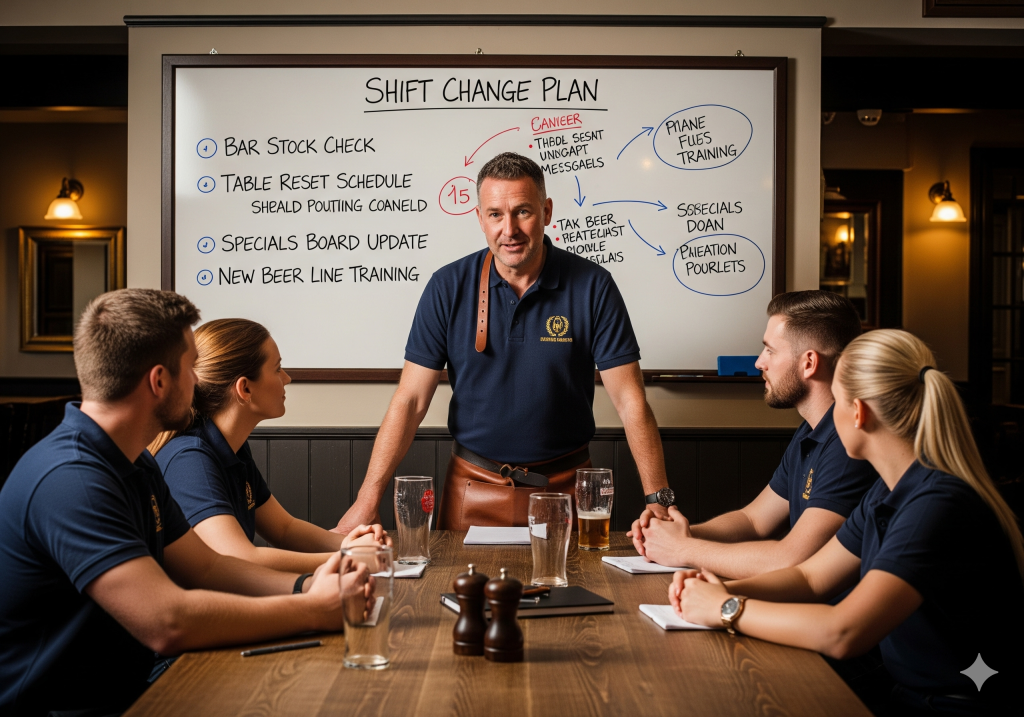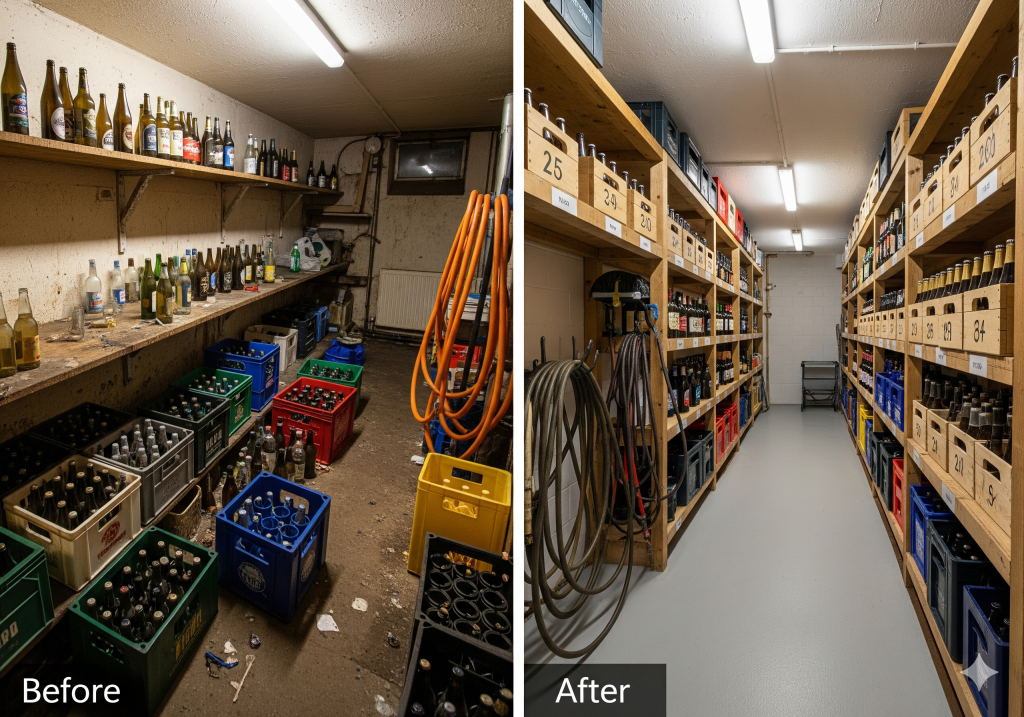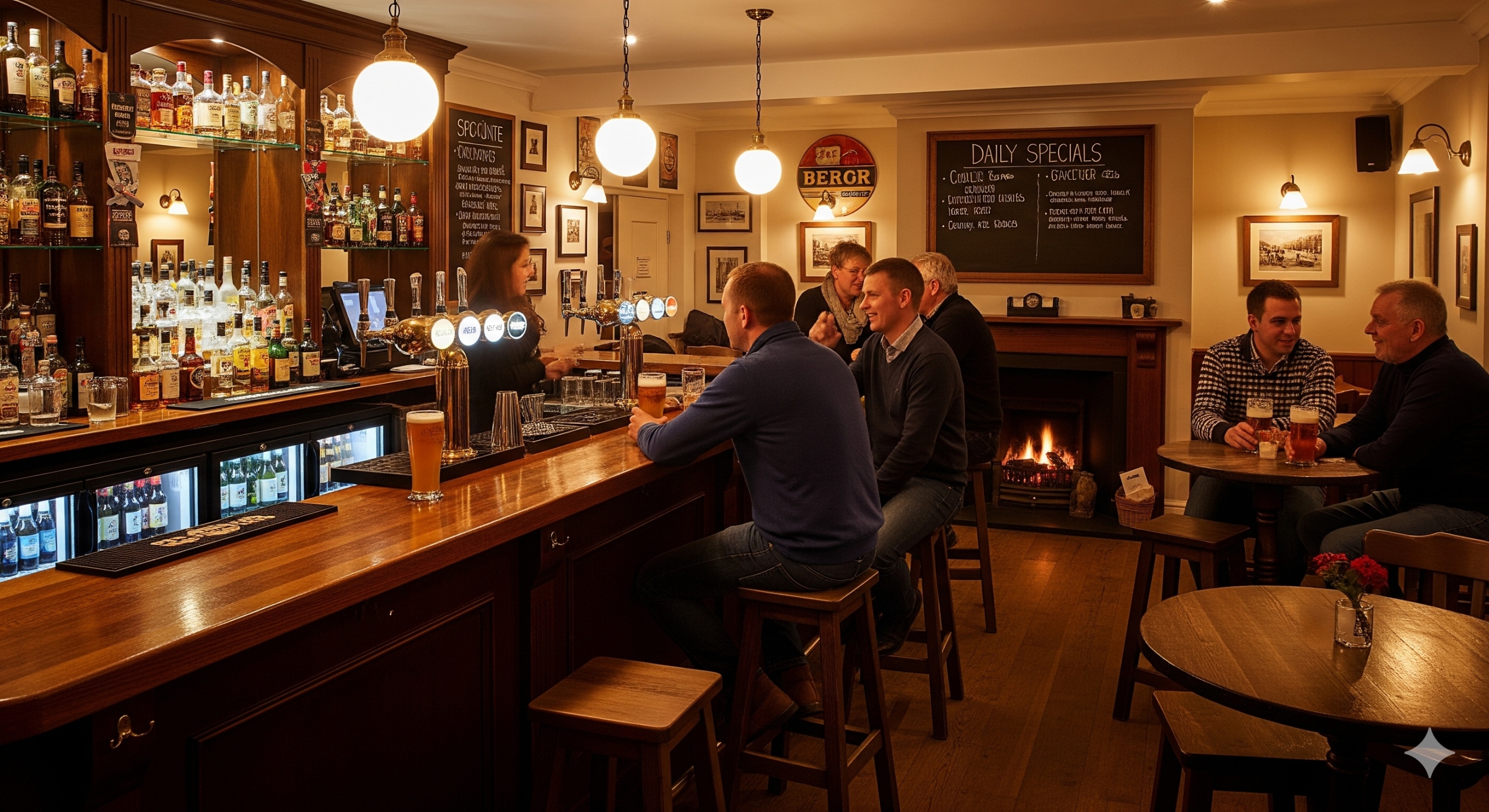Why Change Management Matters in Pubs
Running a pub isn’t just about keeping the beer cold and the punters happy. It’s about steering a team, balancing suppliers, adapting to trends, and making sure changes don’t turn into chaos. Whether it’s introducing a new menu, switching POS systems, or managing a refurb, landlords face constant shifts. Done badly, change can drain morale, alienate regulars, and wreck margins. Done well, it can energise teams, boost trade, and futureproof the business.
Change management is a skill every great pub manager needs. In this guide, we’ll translate proven models (Kotter’s 8 Steps, Lewin’s Freeze Model, ADKAR) into pub scenarios. We’ll explore barriers to change, show you how to implement improvements step by step, and build a playbook you can actually use during Friday night service.

The Pub Reality: Why Change Often Fails
Change in pubs rarely fails because the idea was bad. It fails because:
- Staff weren’t consulted (so they resist).
- Communication was rushed (so confusion reigns).
- Regulars weren’t considered (so backlash builds).
- Quick wins weren’t celebrated (so motivation fizzled).
As McKinsey notes, 70% of organisational change projects fail — and pubs aren’t immune (source: McKinsey & Company).
Frameworks That Work (Pub-Specific)
Lewin’s Unfreeze–Change–Refreeze Model
- Unfreeze: Build urgency. Example: sales on Sunday roasts are dropping. Share the numbers with staff, admit the problem, and show why a new menu trial is necessary.
- Change: Test solutions. Run a smaller “Roast & a Pint” offer for two weeks.
- Refreeze: Standardise. Once it works, train the team, lock in SOPs, update menus.
Kotter’s 8 Steps for Pubs
- Create urgency – “We’re losing £300 a week on poor stock control.”
- Form a guiding coalition – get cellar staff + bar supervisor + chef aligned.
- Develop a vision – “Zero wastage in 3 months.”
- Communicate – shift briefings, WhatsApp updates.
- Empower action – give staff authority to bin dodgy kegs.
- Generate quick wins – highlight when wastage drops week by week.
- Consolidate gains – roll waste reduction into training.
- Anchor changes – “This is how we run cellars now.”

ADKAR (Individual Level)
- Awareness – tell bar staff why rota changes matter.
- Desire – show them they’ll get fairer shifts.
- Knowledge – train them on new rota software.
- Ability – let them try swapping shifts in app.
- Reinforcement – reward those who adopt it.
*(Outbound link: Prosci ADKAR model)
Barriers to Change in Hospitality
Research shows the most common barriers include fear of incompetence, loss of control, and ripple effects across teams (source: UKHospitality Hospitality Workforce Report). For pubs, these look like:
- Loss of Control: Bar staff worry “I won’t get a say in my shifts anymore.”
- Competence Fear: Cellar hands worry “What if I can’t handle the new ordering system?”
- Ripple Effects: A kitchen menu tweak causes chaos for bar staff handling food tickets.
How to Beat These Barriers
- Consult early – involve staff in shaping rota or menu changes.
- Train properly – short, focused sessions with real examples.
- Celebrate success – highlight improvements quickly.
Implementing Change: Step by Step for Landlords
- Set SMART Objectives – “Cut wastage by 20% in 8 weeks.”
- Assign Roles (RACI model) – Cellar manager Responsible, Landlord Accountable, Staff Consulted, Brewery Informed.
- Plan Communications – staff WhatsApp group + posters in back office.
- Manage Resistance – 1-to-1 chats with vocal objectors.
- Celebrate Quick Wins – free pint for staff when goals met.
(Outbound link: HubSpot SMART goals guide)
Motivating Teams During Change
Pub teams thrive on routine. Change disrupts that — so motivation is critical. According to Cialdini’s principles of influence (Influence at Work), you can motivate with:
- Commitment & Consistency: Get staff to commit to small behaviours first.
- Social Proof: Highlight another pub down the road adopting similar practices.
- Reciprocity: Reward staff with a pint or meal for embracing changes.
Continuous Improvement in Pubs (Kaizen)
Kaizen isn’t just for factories. In pubs, it’s about daily tweaks:
- Reorganising glassware to reduce movement.
- Adjusting cellar layout for faster keg swaps.
- Using staff suggestions to cut waste.
The 5S Method in a Pub
- Sort – bin old menus.
- Set in Order – label glass shelves.
- Shine – clean drip trays daily.
- Standardise – rota who cleans cellar.
- Sustain – checklists for every shift.
(Outbound link: Lean Enterprise Institute 5S)

Customer Communication During Change
Customers hate surprises. If you’re changing hours, refurbishing, or trialling a new menu, tell them early:
- In pub: posters, table talkers, staff scripts.
- Online: Facebook events, Instagram reels, website banners.
- Tone: cheeky but clear. Example: “We’re ripping the place apart (but only for 2 weeks). Come see the new look on 12th May.”
Case Studies: Pubs That Managed Change Well
- The Red Lion (Midlands): Cut wastage by 25% by involving cellar staff in new stock system trial before full rollout.
- The Ship Inn (South Coast): Increased Sunday roast covers 40% after trialling menu tweaks with regulars before making changes.
- The Kings Arms (North): Reduced rota disputes by 70% with ADKAR model + rota app training.
(Outbound link: CAMRA case studies)
Conclusion: Change Done Right Fills Pubs
Pubs that embrace structured change management don’t just survive — they thrive. By applying proven models, consulting staff, celebrating wins, and communicating clearly, you can make changes stick. Whether it’s a menu tweak, refurb, or tech upgrade, the goal is the same: a smoother operation, happier staff, and a busier pub.
For more practical tools, templates, and ready-to-use social content, head over to smartpubtools.com/blog for the full library, or try the tool directly at smartpubtools.net.
